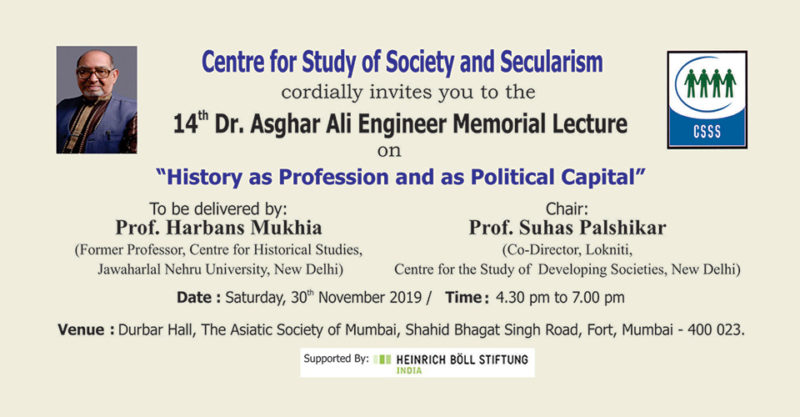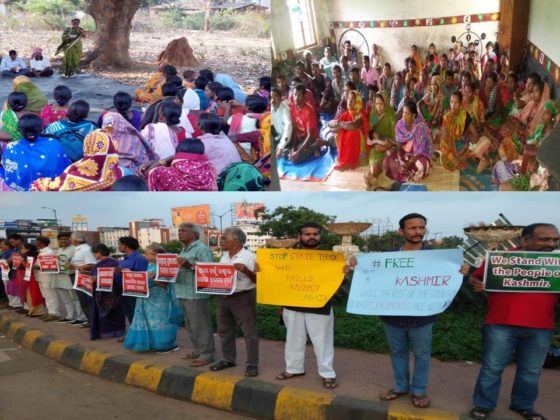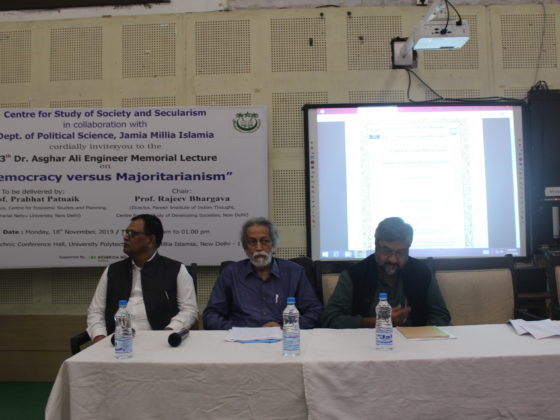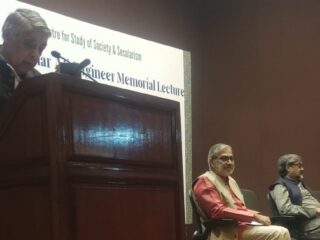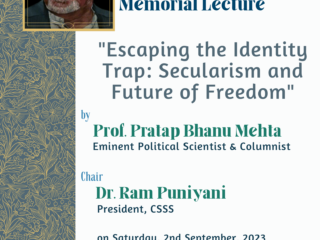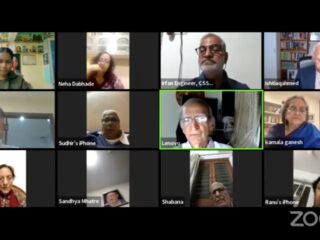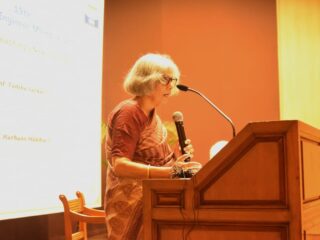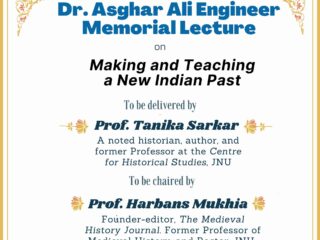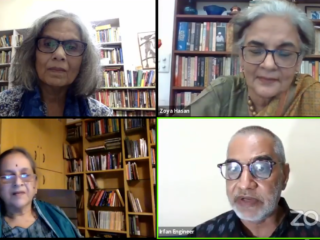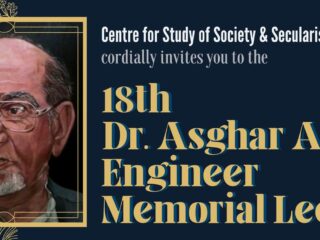Centre for Study of Society and Secularism cordially invites you to the 14th Dr. Asghar Ali Engineer Memorial Lecture on “History as Profession and as Political Capital” to be delivered by Prof. Harbans Mukhia (Former Professor, Centre for Historical Studies, Jawaharlal Nehru University, New Delhi) and Chaired by Prof. Suhas Palshikar (Co-Director, Lokniti, Centre for the Study of Developing Societies)
Date:
Saturday, 30th November 2019
Time:
4:30 pm to 7:00 pm
Venue:
Durbar Hall, The Asiatic Society of Mumbai, Shahid Bhagat Singh Road, Fort, Mumbai – 400 023.
RSVP
Online Form – Click Here OR
E-mail – csss.mumbai@gmail.com OR
Phone – 022 26149668 / 022 26135098
About the Lecture: History as Profession and as Political Capital
Historians usually take pride in proclaiming that theirs is the oldest academic discipline going back to Herodotus (5th Century BC). While almost all civilizations evolved varying modes of viewing the past, often lacking the vigour of fact-checking, History’s emergence as a profession, with a given set of parameters, is no older than two centuries, give or take some decades. As empiricism took shape in Europe from the eighteenth century, History began to be subjected to scrutiny of its facts and the rationality of conclusion drawn from them. “Scientific history” was the term minted for it. However, prior to that, insistence on strict chronological sequencing of events and some notion of tracing a fact’s origin had become integral to the discipline in the Islamic world.
Even as the study of history in terms of binaries, truth vs falsehood, us vs them, men vs women, class vs class, Occident vs the Orient etc. goes back to a hoary past, in the recent decades binaries have yielded space to pluralist visions which have profoundly transformed the discipline.
Basically history leaves us with two lessons: How societies change over time; and how it is mobilized as political capital by the state to reinforce its legitimacy and by the state’s opponents to legitimize their opposition.
Speaker: Harbans Mukhia
Harbans Mukhia, 80, was Professor of Medieval History and Rector, Jawaharlal Nehru University, New Delhi. He is the founder-editor The Medieval History Journal, published by SAGE. In early years, his interest focused on medieval Indian historiography which led to his doctoral thesis, Historians and Historiography during the Reign of Akbar, published as a book in 1976. Teaching a course on Feudalism at JNU led to research on its theoretical and empirical premises in a comparative perspective. ‘Was there Feudalism in Indian History?’ published in The Journal of Peasant Studies, 1981, became the centre of an international debate from 1985 to 93 resulting in two books. In 1988-90, co-edited with Maurice Aymard translations of some 35 articles of the best French historians and published in India in two volumes: French Studies in History. Among his other books are Religion, Religiosity and Communalism (co-edited with Praful Bidwai and Achin Vanaik), 1996, The Mughals of India, 2004, and Exploring India’s Medieval Centuries: Essays in History, Society, Culture, and Technology, 2010.
Chair: Suhas Palshikar
Suhas Palshikar is Co-Director at Lokniti, a research programme of the Centre for the Study of Developing Societies and the Chief Editor of the journal Studies in Indian Politics. He was professor at Savitribai Phule Pune University till his retirement in 2016. Prior to joining Department of Politics and Public Administration as Faculty Member at the University of Pune, he was teaching undergraduate students for a decade at S. P. College. His areas of specialization are Political Process in India, Politics of Maharashtra, and Political Sociology of democracy. His has authored and co-edited many books and articles, including his more recent book, Indian Democracy (Oxford India Short Introductions, OUP, 2017) and Electoral Politics in Indian States: Resurgence of Bharatiya Janata Party (2017; co-edited). He is also co-editor of Sage Series on Politics in Indian States since 1990s. He is also a frequent contributor to EPW and Indian Express.

